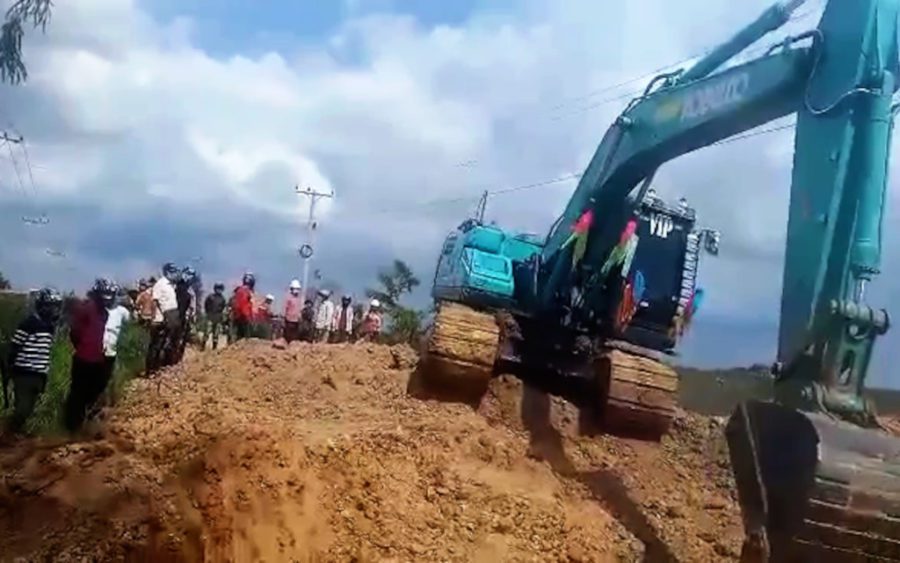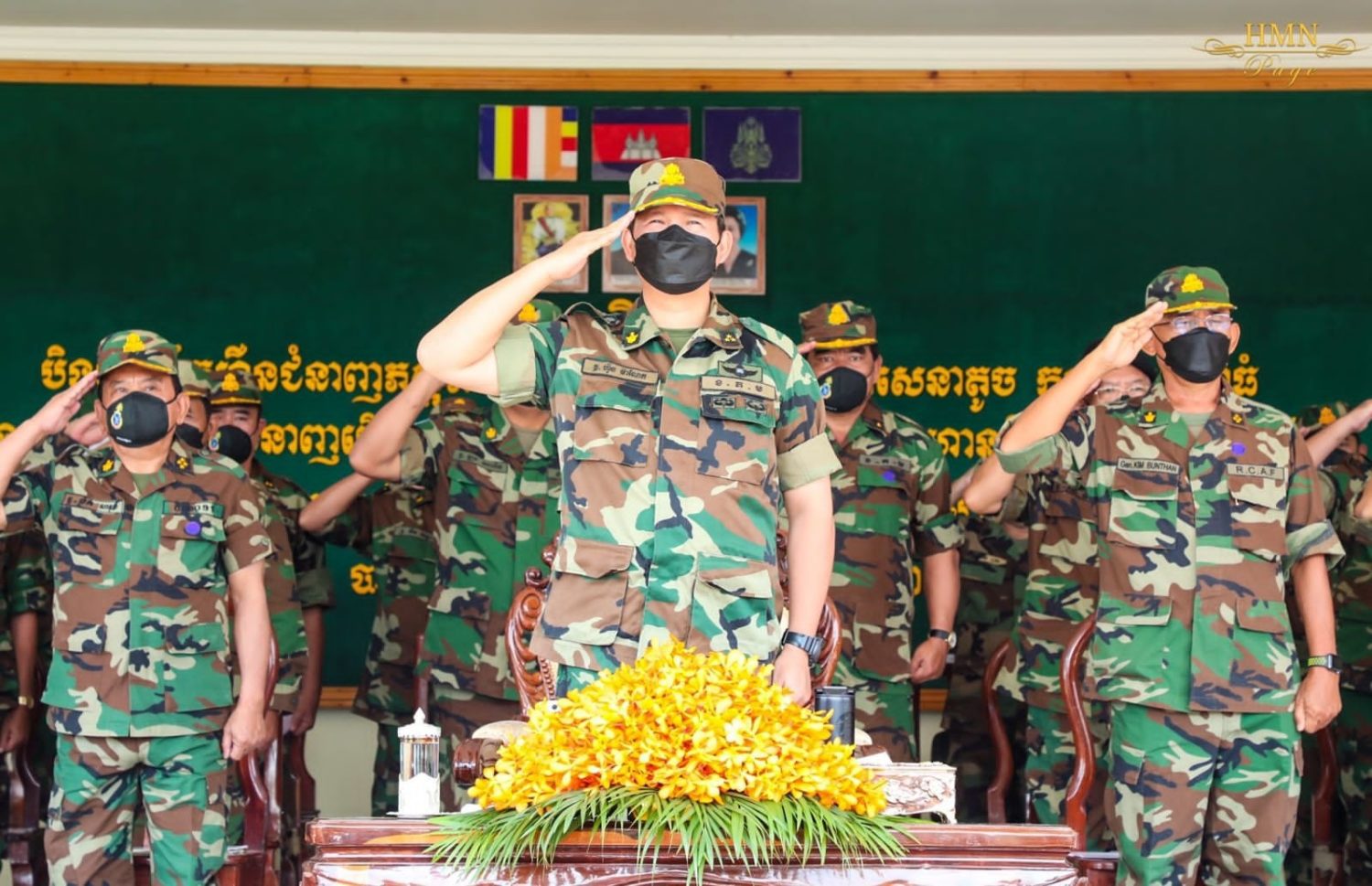Thirty land protesters were arrested at the new Phnom Penh airport development in Kandal province last Sunday, accused of using violence against authorities deployed to Kandal Stung district’s Boeng Khyang commune, an area where many families have yet to accept compensation to make way for the project.
Nine of the detainees were sent to prison for almost a week on charges of intentional violence, obstructing public officials and incitement, part of a dispute in which families are refusing an offer of $8 per square meter, saying market prices have become far higher. The company, tycoon Pung Khiev Se’s Overseas Cambodia Investment Corporation, is accused of bulldozing the landowners’ farmland anyway. The nine detainees have been released on bail, but the charges still hang over them. A family member has said that the detainees were told to accept the compensation on offer if they wanted to get out.
Over the years, protests have erupted, and protesters arrested and shot, amid disputes across the country over evictions and compensation.
In March 2018, three people were shot in Kratie province after forces opened fire on about 300 people protesting a violent eviction, according to a report by rights group Licadho.
In January 2019, a man was shot and injured when the armed forces moved to enforce a Supreme Court verdict in connection with a land dispute in Preah Sihanouk, the same report says. On June 3 this year, a group of soldiers opened fire and injured a land protester in Kandal province.
Observers say the process of compensating evictees in development projects needs to be cleared up to avoid increasing mistrust, poverty, fear and injustice among the population.
Vann Sophat, a project coordinator for the Cambodian Center for Human Rights, said the airport case amounted to coercion against landowners to accept compensation as demanded by the authorities and the company. This violated the law and was a serious human rights violation, Sophat said.
“It is a serious violation of the rights of the people. When it comes to human rights, this is not following the law. It is like putting pressure on them to accept,” he said.
Sophat believes that such actions will leave people suffering. The actions lacked transparency and could build pressure toward a social crisis, he said.
Expropriation by intimidation will undermine past government efforts, including giving land titles and reducing poverty, he said.
“People were worried when there was development on land where they do not have a title. They are even more worried now,” he said. “Even when the land has a title, [they] still can take their land without proper compensation as required by law. So they are really worried.”
Theng Savoeun, president of the Coalition of Cambodian Farmer Communities, said some farmers had already accepted compensation under threat and intimidation.
This will lead to an increase in poverty, corruption and loss of faith in the legal system, he said. Such actions cast doubt over the government’s responsibility before the Constitution, he said.
“On the one hand, social injustice will increase the pain for the people who are the victims. On the other, it will lead to a debate on the responsibility or confidence of the people in public authorities and civil servants in the leadership system, from the commune level to the national level as well,” Savoeun said.
Kandal provincial governor Kong Sophorn said authorities were not forcing residents to accept compensation, and the offer of $8 per square meter was determined by a commission to be the price when the project was announced, before prices rose.
The government signed off on the project in 2018.
“This deal does not mean coercion. Whoever agrees, come and take it. Whoever does not agree, just wait to take it later,” Sophorn said. “This means that it is not against the law. It is about levels of control and agreement, but if we look at this and say it is wrong, that is difficult to understand.”
The Constitution stipulates that confiscation of private property is possible only with “prior appropriate and fair compensation.” The 2010 Expropriation Law sets out further conditions to ensure “just and fair” confiscation of property.
Article 22 of the law says such compensation should be based on market prices “as of the date of the issuance of the declaration on the expropriation project.”
Sophorn added that the recent arrests of protesters was not because they refused the offer, but because they had caused violence to authorities.
Pech Pisey, executive director of Transparency International Cambodia, said legal pressure to force landowners to accept compensation had no legal basis and set a bad example for a democratic country.
If the relevant institutions did not review and improve this situation, people would lose faith in the legal system, there would be social injustices and corruption, and investors would shy away from doing business in the country, Pisey said.
“At that point, I think that as a democratic country and to strengthen the rule of law, we should start to strengthen the rule of law, strengthen the law and increase people’s trust by working as public institutions.”
Note: This report was produced with support from the Rosa Luxemburg Foundation under the financial support of the German Federal Ministry for Economic Cooperation and Development.














